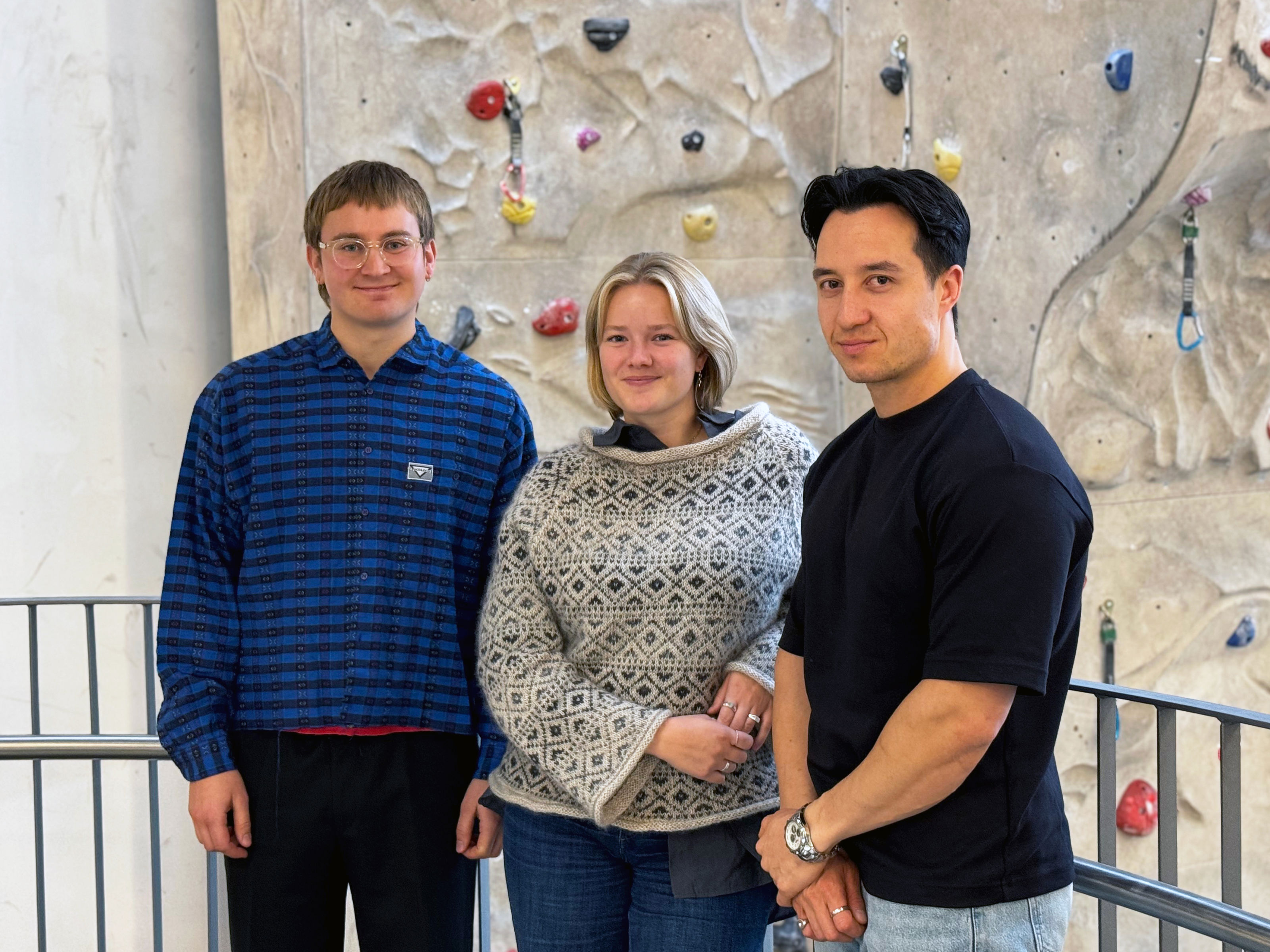Increased Interest in Becoming a Geotechnical Engineer
The master's program in Geotechnical Engineering at OsloMet is experiencing significant growth, with an increase from 6 students last year when the program was launched to 16 this year.

Halvard Ivarjord, Ella Rønningen og Sarfaraz Rizai are master students at OsloMet. ( NGI by Krister Jung-Lian)
Geotechnics has quickly captured the interest of many aspiring engineers, reflecting both the industry's needs and the strong collaboration between OsloMet, NGI, and Konnekt.
A Central Role in the Green Transition
Associate Professor at OsloMet Jian Dai is responsible for both the bachelor’s and master’s programs in civil engineering and coordinates the geotechnics specialization.

Jian Dai is an Associate Professor at OsloMet and the coordinator for the geotechnics specialization.
“There are far fewer geotechnical engineers being trained than the demand requires. This is a problem,” says Jian Dai, who is pleased to see more students choosing geotechnics as their specialization in civil engineering.
Dai believes that geotechnical groundwork often goes underappreciated. The recognition typically goes to the engineers behind the visible structures on top – structures that often wouldn't be possible without geotechnical engineers.
“People take for granted that our buildings stand safely and securely. Geotechnical engineers play a crucial societal role. We rely on geotechnical expertise when constructing roads, preventing avalanches, adapting our society to future climate conditions, and ensuring wind turbines stand firmly far out at sea,” he explains.
The program has also seen some improvements since its first run last year.
“This year, we’ve included more practical subjects, such as fieldwork and lab experiments, so that students gain more hands-on experience. This better equips them for the workforce,” says Dai. He adds that some structural changes have been made at the bachelor’s level, providing students with a deeper introduction to geotechnics early in their studies.

The Science Project "TEAM KATASTROFE."
Developing in Line with Society’s Needs
NGI visited the campus to speak with three of the 16 new master's students. Ella Rønningen has returned to Oslo after completing a bachelor’s degree at NTNU in Trondheim. She aims to work on large transport and infrastructure projects.
“That’s where geotechnical expertise comes in handy. I also think the lecturers are incredibly skilled,” says Rønningen.
Halvard Ivarjord missed the opportunity to choose a geotechnical specialization at the master’s level.
“Geotechnics is about using nature as a material, which I find fascinating. I chose geotechnics because I’m particularly interested in the research aspect. It’s a profession that stays true to traditions but also evolves with society’s needs,” he explains.
Sarfaraz Rizai had a summer job at NGI’s laboratory while still pursuing his bachelor’s degree. This inspired his choice of specialization at the master’s level.
“I didn’t know much about geotechnics before, but I became increasingly interested after working in the lab. It’s a field that gives you insight into something fundamental for construction and infrastructure,” says Rizai, who now works part-time in NGI’s lab alongside his studies.

Good vibes in the study room!
Shortage of Geotechnical Engineers is a Societal Problem
Lars Andresen, CEO of NGI, emphasizes how crucial it is for Norway to train more geotechnical engineers. There is a high demand in both onshore and offshore geotechnics. Developing new solutions for offshore wind foundations, reducing the risk of landslides and other natural hazards related to climate change, and ensuring stable ground conditions for large infrastructure projects require geotechnical engineers.
“Geotechnics is often critical expertise in both public and private projects. The shortage of geotechnical engineers is a societal issue. That’s why, together with Konnekt and OsloMet, we initiated establishing this master’s program,” says Andresen.
The collaboration between OsloMet and NGI also provides students with valuable experience at NGI’s world-leading laboratory facilities, enhancing their competence and better preparing them for future challenges in the field.
“It’s great to see more students choosing this path. For us at NGI, it’s important to collaborate closely with universities, both in research and in training the geotechnical engineers of the future,” concludes Andresen.
